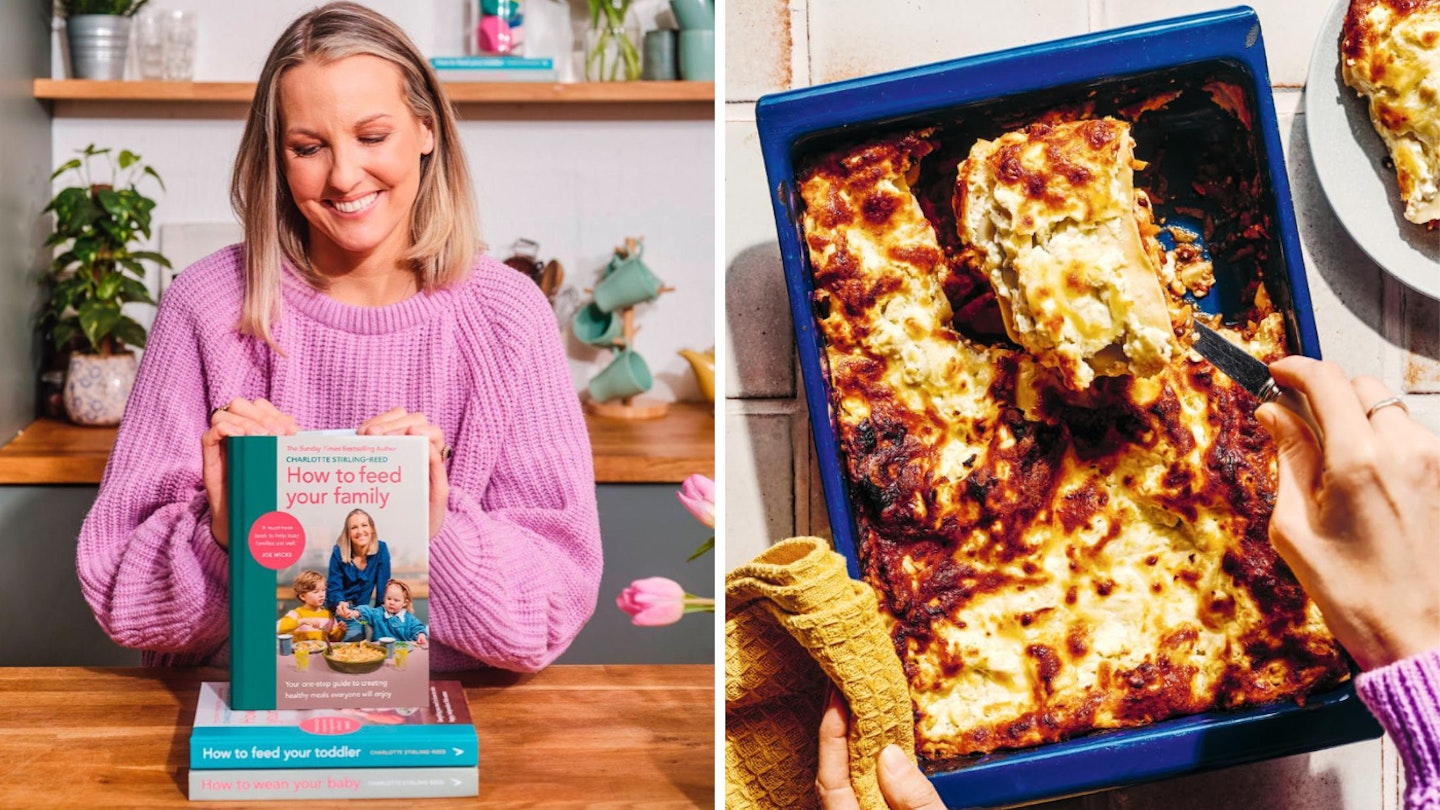There's a lot to think about when you're a parent and we all know how difficult it can be to plan healthy meals that everyone from the littlest member to the largest will enjoy. That's where having a good selection of family cookbooks from the likes of Charlotte Stirling-Reed comes in useful.
One book you'll want to add to your collection is Charlotte Stirling-Reed's How To Feed Your Family, out this month. Nutritionist Charlotte is well known for her guidance on baby weaning and has previously released two best-selling books How to Wean Your Baby and How to Feed Your Toddler. She's also credited with helping everyone from Jools Oliver to Rochelle Humes with weaning their little ones, even working with Joe Wicks on his book Wean in 15.
In her new book, you'll find 70 delicious and balanced recipes, each with clear baby and toddler adaptations along with Charlotte's expert advice. We especially love Charlotte's guides on how to reduce food waste at home and alternative/substitute ingredients.
M&B talks to Charlotte Stirling-Reed
Congratulations on the new book! How would you sum it up?
I would call it a family feeding Bible because I think it's so much more than just recipes. The recipes are so important and I love them and I'm using them a lot but my book has facts and nutrition and practical support in there as well. So it's not just recipes, it's really rounded.
Would you say it's a natural progression from your other books?
I think it has almost followed my own stages in life. I was sort of in between weaning Raffy and Ada when the first book came out, so I'd done it myself and kind of got that competence and was going into it a second time. And then with How to Feed Your Toddler, I think Raffy was about three or four and then Ada was just coming up to one and so I had that toddler aspect of the slight food refusal and when all those challenges come up in the toddler years.
And now both kids are a little bit older, Ada's just turned three, Raffy, six. And for me, it's much more 'Right we are as one' you know, it's not like us and there's a baby that we're now having to sort out and do things slightly differently with. We really are this kind of family unit now and I'm not saying we weren't before, but I feel like something changes when your children grow just that little bit and you can have more conversation and you eat together and so for me, it's really progressed as I've progressed.
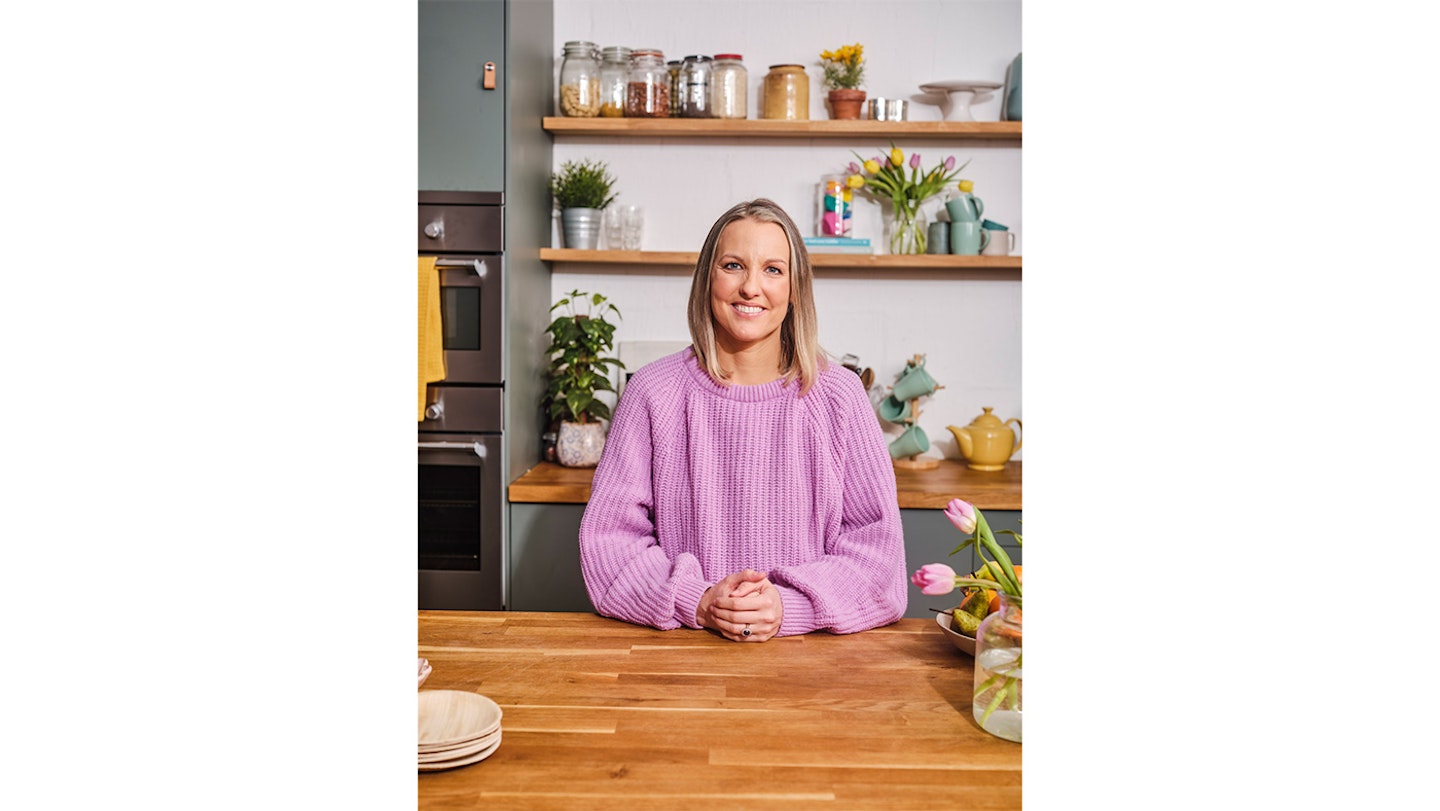
Was it important for you to include a lot of guidance in the book?
This is obviously my third book and throughout all of my books, I really pushed as I didn't just want to make a cookbook because my background is nutrition and feeding kids and family eating. And so for me, that is such a critical element to get in there. And I think there are so many wonderful cookbooks out there but for me, the difference with this is that it has that content, it's there to support as well as give delicious recipes. It's so important for me to have that. I've been working with parents via Instagram, and obviously before that in real life, for a long time, and I just know that families, often not always, want that little bit more hand-holding. And I find it myself in so many areas, I want someone to give me a few tools to give me the confidence to go 'Got it. I know what I'm doing now.' And that is that's really the aim of my books, I would say.
What type of things did you struggle with when it came to your own children?
Oh, so much! So first of all, with my son, I was really nervous about finger foods. And I'd spent my whole career telling parents, 'Oh, don't worry, they'll get this, they can do it, they don't need teeth!'. And then it came to doing it myself and I was really panicked. I have to say, I actually stepped back from the finger foods for a week or so and gave myself a little bit of time to let him get familiar with the food and the spoon, because I was a bit nervous. And then I kicked off and went in with the finger foods, which isn't something I generally advise. But life isn't perfect and you've got to do what makes you a bit more confident.
I also think I was very shocked when my son started going through a fussy phase. We hit COVID and he hit three at roughly the same time and he was locked in, had no nursery and dropped naps. And all of a sudden, it was just such a change, his whole character really changed and it was a really tough time. He started being incredibly fussy with his food and I remember for a few weeks scrabbling around being like, 'Wait, how do I fix this?' And then going, I know, I need to listen to my own advice and take a step back. And that is actually when I then started writing How to Feed Your Toddler, because I was like, 'Well, I've just gone through this and it's really challenging but I know that when I stopped and paused and put the advice in place, it actually had a really, really positive impact.
The other thing that has been really shocking to me has been the difference between my two children. So my son eats big portions, loves his food and is really experimental. My daughter is a bit of a nibbler, she likes little and often, she's a bit more reserved about food and she won't readily eat something up. And if she doesn't want food, she'll get down from the table, she's done. So it's been such a contrast. And it's really helped me to learn about that fact that, yes, I fed my son in this way and yes, he ate really well. But that doesn't always translate to every child and you can still have children who are completely different eaters and have the same experience with food.
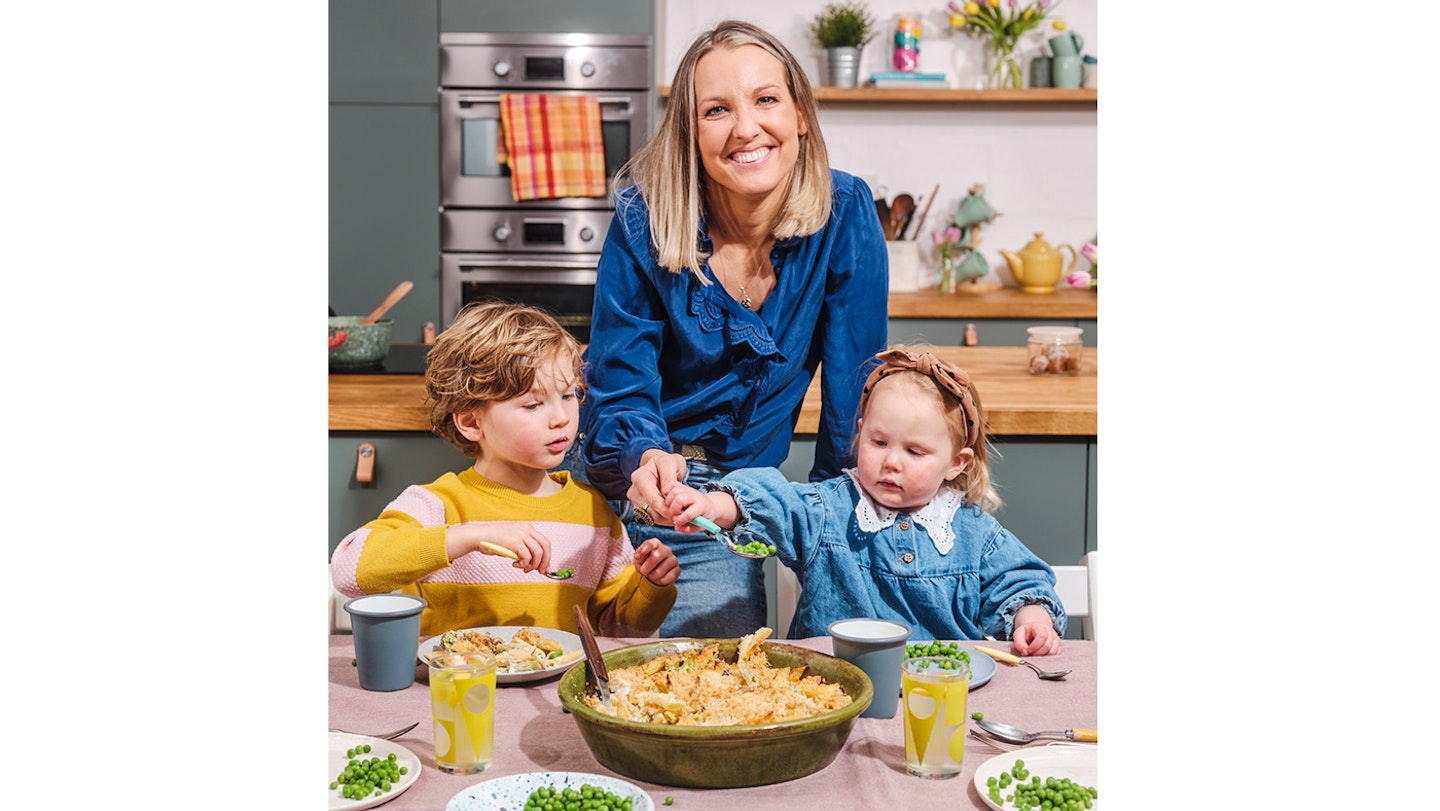
How important is food language with children?
I think this is huge. And I think it's something that as a society we really struggle with. I grew up in a generation where everyone was talking about dieting and celebrities were on the front cover if they had a bit of flesh, misplaced or whatever. I think we grew up in a society which was really damaging to self-esteem, to mental health, to our relationship with food and I think it didn't help that at home, there's often quite a lot of pressure.
Our parents came from parents who were around when there was lots of rationing. So this idea of eating up - you eat what you're given, you clear your plate - was still very paramount. So I think we've got this really confusing set of advice and acknowledgement and so I think it's incredibly important that as a generation, we try and stop passing that on. And that's really hard, because actually as a society, we don't waste food. It's not polite to not finish your plate and women are still kind of quite vilified, not I don't think to the extent that they were in terms of their bodies, but I still see it constantly. So I think we have a big fight to do.
I think what you do at home matters. And that's why I try and talk about things like food language, what children hear at home, what they experience at home, what they see you doing at home, how they see you talking about food at home, is going to have a knock-on effect to their confidence, their self-esteem, their body image and their relationship with food. And there's so much psychology around this, but I think we as parents can help shape this positive relationship. It's something I do talk about in at least two of the books and I think it's just, you know, watching what we say about our own bodies, trying not to have this food hierarchy where some foods are better than others. Not calling foods good and bad and trying as well not to have certain foods being a reward for eating others. Because all we're doing in that case is saying, 'This is the gross stuff that you have to get through and this is the pinnacle that we all want to aim for.' And so we're actually having the opposite effect of what we want them to eat, so that level playing field is really key. It's a very complicated topic, but such an important one.
A lot of people are concerned about the cost of living crisis and food, as a result of this. What would be your advice?
It is really tough. And at the moment, you know, you're going to find that very little is going to help because it's really, really, really challenging times. But definitely what I would say is batch cooking actually does save you a lot of money. Especially if you're bringing food home, you're prepping it, getting it ready, freezing it. So for example, if you bought some potatoes from the supermarket they're about to go off, get them home, slice them up, lay them on a tray and pop them in the freezer. And that means that they actually are going to last for a much longer time. And when you're batch cooking, you tend to be able to throw lots of things in and you then have got food that was going to go to waste all bundled into a big batch cook bowl and then you freeze it again and it means that you don't have to go to supermarket as many times to buy food.
The other thing I would say is bulk buying things like pasta and rice and making sure we visit the aisle in the supermarket which has got a lot more different foods from different cultures. Sometimes you can get a lot of cheaper options like big bags of lentils and big bags of rice and couscous from there as well. So definitely do that.
I use a lot of frozen veg in the book and I've got a couple of really great recipes that use frozen veggies, like a frittata and pasta. I am a huge fan, they help to reduce food waste and it means you can just get them out, tip some in and put them back again, adding towards your five a day. I think we're often quite nervous about using them, but they are a saviour to me, and I use them very, very, very regularly. And the same with things like frozen berries, frozen spinach. I've even started kind of chopping up onions. So if the onions are slightly going off, chop them all up, dice them all up, put them in a little pot, put them in the freezer, and then you can literally just chuck your onions as you go along. And again, it saves time, saves headspace and reduces food waste. There are lots of little winners like that in the book.
What are your family's favourite recipes from the book?
What the kids love - and I talk about this a lot in my Instagram stories - is the baked banana bars which are one of the breakfast recipes in the book. They're super easy, they take five minutes to put together and then they're like 40 minutes in the oven. The kids love it and even my husband - who is actually probably one of my biggest critics when it comes to my food, he's never satisfied - loves it. And if I leave it out, he will honestly eat like the whole thing! So I have to cut it all up and put it away very quickly.
One of my personal favourites is the Pad Thai. I love Pad Thai. I love it so much. And it really reminds me of going and meeting friends in London back in the day. I also love the fact that it's super versatile. It also takes about 15 minutes to put together and for me, that's a winner for a really nutrient-dense, delicious, quite novelty recipe.
I just had Ada's birthday and I made my beetroot brownies from the book. I had some fussy eaters coming to the party, my niece and nephew who don't love lots of foods and they gobbled them up. So I was thinking 'Oh my gosh, if I got a thumbs up from them, I am absolutely winning!'
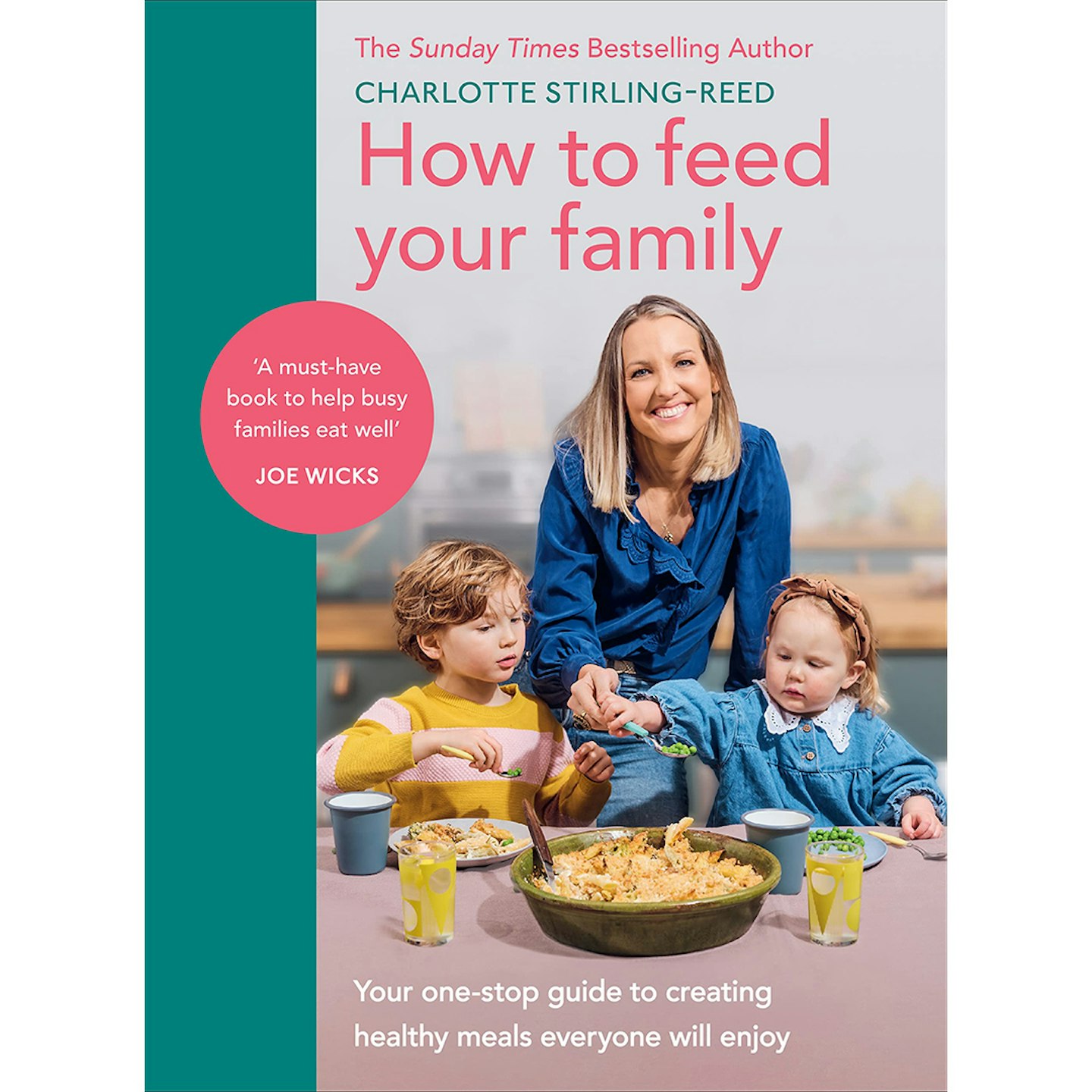
Charlotte Stirling-Reed's new book How to Feed Your Family is available to pre-order and will be released on July 20th.
Buy Charlotte's other books
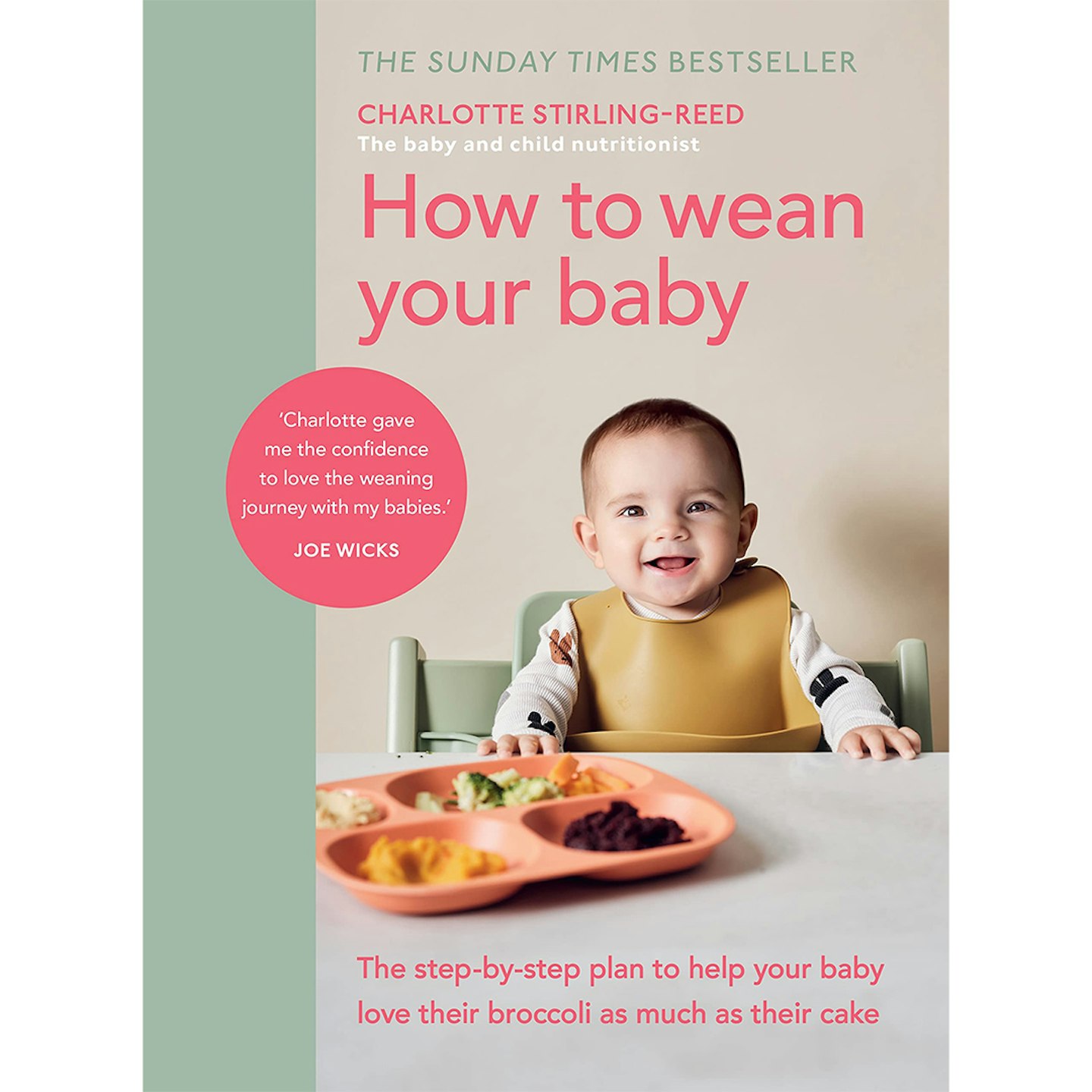
Based on a vegetable-first approach, the perfect way to develop healthy eating habits and to tackle fussy eating before it begins, in Charlotte's first book you'll be hand-held through the first 30 days of weaning as well as given lots of delicious recipes all the family can enjoy.
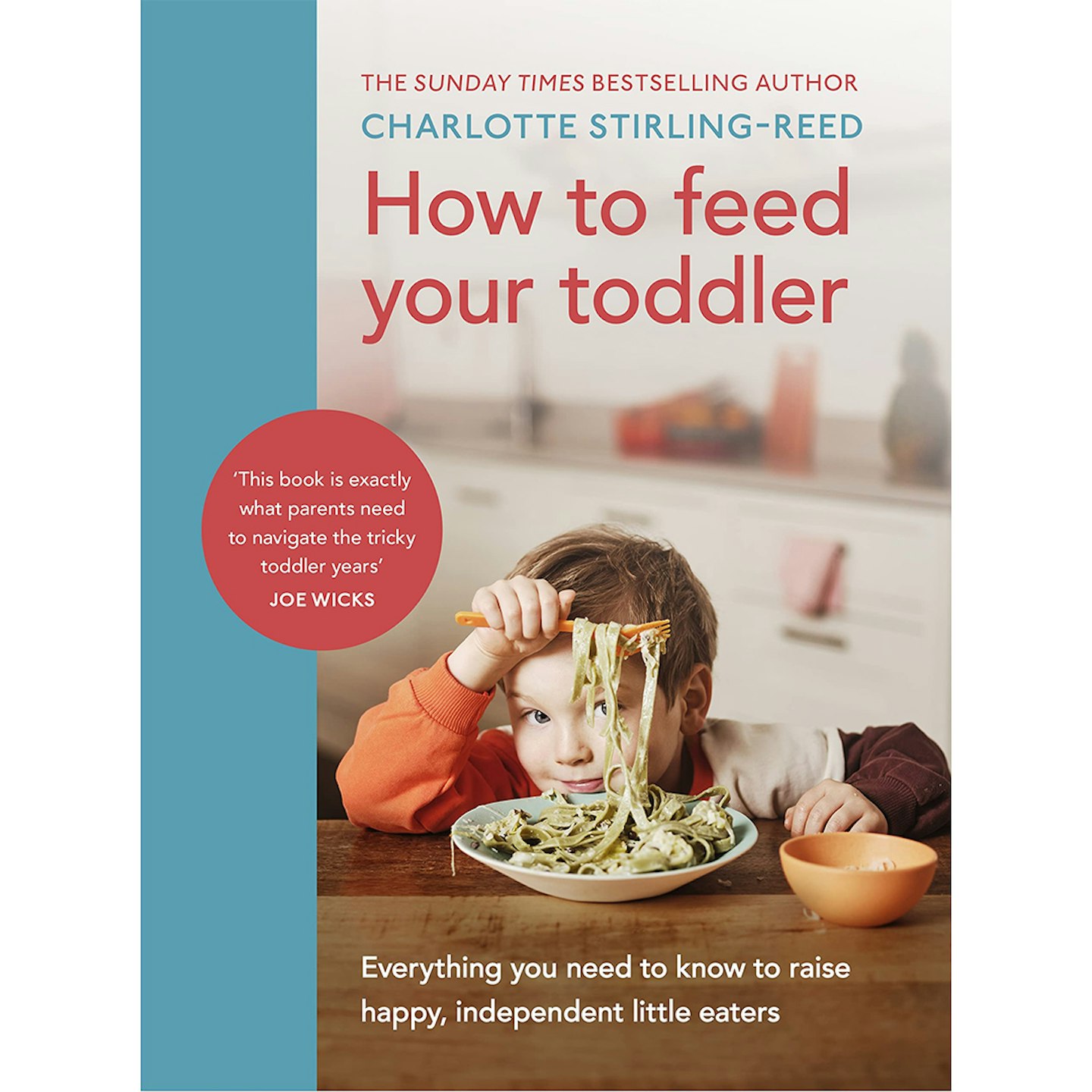
Starting at 12 months, and taking you right through to pre-school age, in How to Feed Your Toddler there are 50 delicious, healthy and super-easy recipes, to expose your little one to a variety of flavours and textures, and designed so the whole family can enjoy them together. It'll also help to avoid the fussy eating trap so you can bring up adventurous little eaters who love a wide variety of food.
Emily Gilbert is the Features & Reviews Editor for Mother&Baby and has written for the website and previously the magazine for six years. Specialising in product reviews, Emily is the first to know about all the exciting new releases in the parenting industry.
